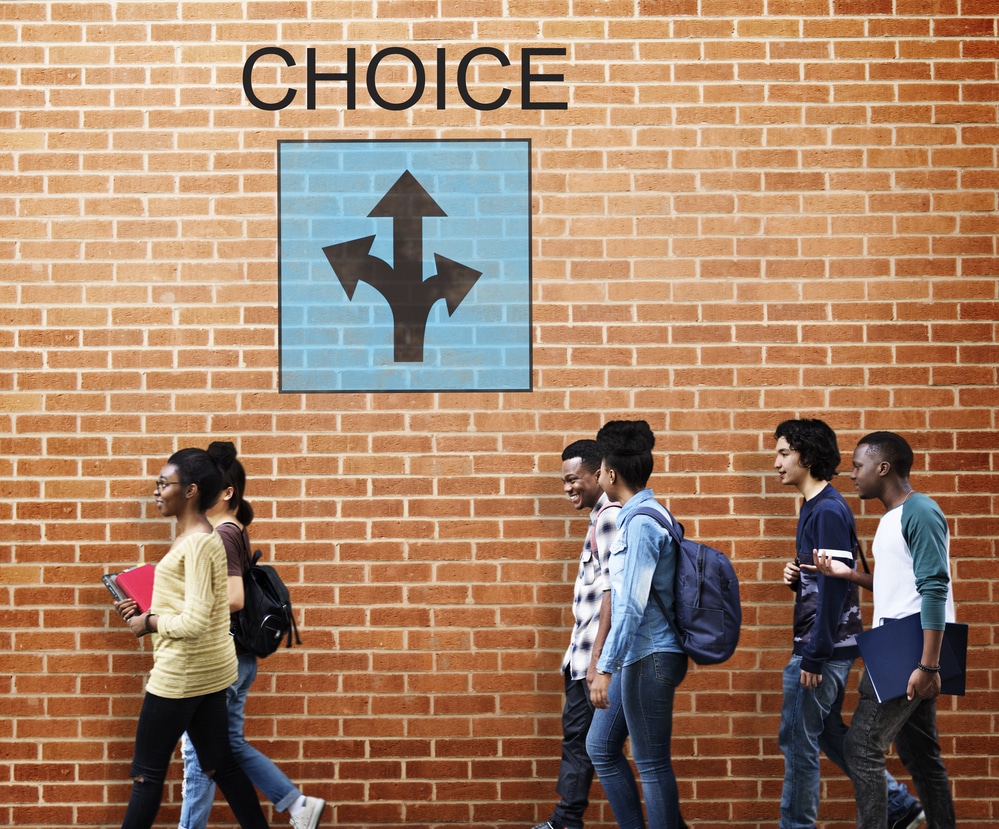Republicans in Kentucky’s House of Representatives are pushing for school choice. This comes after Kentucky’s Supreme Court ruled that no tax dollars could go to any school besides public schools. Now, the GOP fighting back.
State Rep. Josh Calloway introduced a bill that would ask if voters would be willing to amend the constitution to allow “families of limited financial means more educational choices.” The amendment would allow for “a portion of the educational costs for parents of students outside of that common school system.”
Change is needed in Kentucky’s education system. As it sits, Kentucky ranks just 32nd in the nation in education according to U.S. News & World Report. While they rank higher when looking just at K-12, coming in at 27th place, it’s still something that many Kentuckians want to see improvements in.
Funding vouchers is certainly an upgrade, but it’s also not a complete solution. Vouchers, being financed with taxes, would allow the state to regulate private schools like it does student loans. This would allow the state dictate what goes on in the private schools since they are the ones with the money. And it’s why Ryan McMaken claims, “Voucher advocates are simply advocating for a food-stamp model in education. It’s no more innovative than that.”
But for Kentucky parents seeking better education for their children, school choice is the short-term answer. Any good parent wishes to see their child succeed. And if their child is districted to a certain school which is providing a poor learning environment, those parents want to pull their child out of that school. However, many parents are unable to do so thanks to the financial burden. School choice would give them that benefit.
In 2016, EdChoice, an educational reform and school choice advocacy organization, published a massive study providing empirical evidence for school choice. In the study, they found that fourteen out of eighteen studies found that using a private school voucher increased a student’s proficiency. Thirty-one of thirty-three studies found that school choice led to improvements in the academic performance of public schools. Eight of Ten studies found that school choice lets students move from more segregated schools into less segregated schools.
School choice has other benefits as well. A Harvard study analyzed the effects of school choice in Charlotte-Mecklenburg, North Carolina, the nation’s 20th largest district. In the study, they found that those in the school choice system were more likely to stay on track and enrolled, while showing modest improvements on suspensions and detentions. The study also found that high-risk youth in the system were committing 50% less crime.
Author and economist David J. Deming, the author of the Harvard study, found that “consistent evidence that attending a better school reduces crime among those age 16 and older, across various schools, and for both middle and high school students.”
For many students, bullying is a major problem. So bad, in fact, that it can cause suicidal thoughts with an unfortunate amount choosing to take their own lives. According to the Kentucky Department of Education, suicide is the second leading cause of death for youth and young adults. 15% of high schoolers reported seriously considering suicide within a 12-month period. Additionally, 17.4% of middle schoolers reported seriously considering suicide within a 12-month period.
This number is heartbreaking to hear. Fortunately, school choice can help with this.
According to FEE, an “estimated effect of a charter school law translates to about a 10% decrease in the suicide rate among 15 to 19-year-olds.” They also found that 30-year-olds who attended private school were 2% less likely to report a mental health condition. This is because private schools face intense competition to provide a safer school environment and to improve their students’ mental health. In contrast, public schools, burdened with government regulations, make it much more difficult to do the same.
Opponents of school choice attempt to claim that such measures would be too expensive and would drain resources from public schools. However, reality tells a much different story. EdChoice found that twenty-five out of twenty-eight studies on the matter found that vouchers saved taxpayer money, sometimes by thousands of dollars per participating student. None of the studies found that school choice increased the cost for taxpayers or drained resourced.
The only thing school choice would do is make it easier for parents like Akia McNeary to send their kids to a school of their choice. In an article published by the Hearld Leader, McNeary is able to send her kids to a private school despite the financial burden because it gives them a better opportunity:
“Despite having the schedule of a working parent, Ms. McNeary has spent countless hours advocating for educational choice over the years. She defies the caricatures often thrown around by school choice opponents. Ms. McNeary has three school age children and will be the first to tell you that one of her older sons has thrived in public schools. But each of her children have different learning needs and that is why she wants more options.”
For Kentucky, school choice is a necessity. The state’s educational system is lagging behind others and many want to change that. Implementing school choice would do such.
































